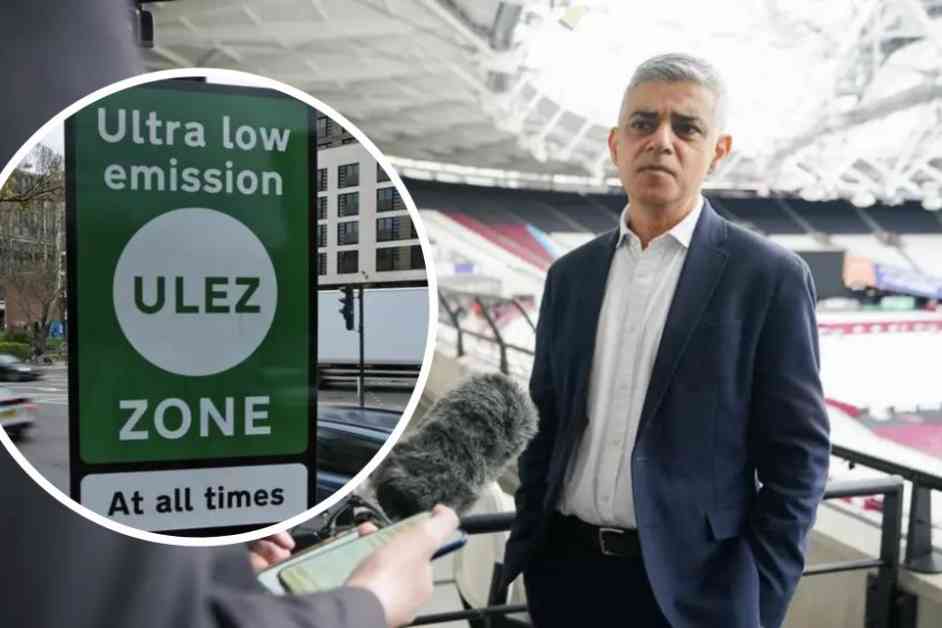Sadiq Khan, the Mayor of London, has made the decision to close the city’s ultra low emission zone (Ulez) scrappage scheme in three weeks. The announcement came as Khan plans to shut down the programme to new applicants on September 7. This move marks a significant shift in the city’s efforts to reduce emissions and improve air quality.
The Ulez scrappage scheme was initially introduced to incentivize London residents, sole traders, small businesses, and charities to upgrade to cleaner vehicles. The program allowed eligible participants to receive cash incentives or a combination of cash and a public transport pass to scrap their old vehicles that did not meet minimum emissions standards. Additionally, some vans and minibuses had the option to be retrofitted with emissions abatement equipment.
Since its inception in January last year, the Ulez scrappage scheme has provided over £186 million in grants to nearly 54,000 applicants. This significant investment has helped many Londoners transition to greener modes of transportation, ultimately contributing to a more sustainable and environmentally friendly city.
As the Ulez area expanded to cover the entire city in August last year, the scrappage scheme became available to a wider range of residents and businesses. However, with applications dropping sharply in recent weeks, City Hall has decided to wind down the programme. Despite this decision, more than 96% of vehicles on London’s roads now comply with Ulez standards, indicating a positive shift towards cleaner air in the city.
In a statement regarding the closure of the scrappage scheme, Mayor Sadiq Khan expressed his pride in the program’s success. He emphasized the importance of taking world-leading action to improve London’s air quality and promote sustainable transport options. Khan also highlighted the impact of the scheme on Ulez compliance, which has now surpassed 96%, benefitting millions of Londoners.
One notable aspect of the Ulez scrappage scheme is its support for Ukraine in its conflict with Russia. Over 330 vehicles have been donated through the program to assist the country, showcasing London’s solidarity with international communities facing challenges. Khan has pledged additional funding to ensure that vehicles can continue to be donated to Ukraine even after the closure of the scrappage scheme.
Christina Calderato, Transport for London’s director of strategy, commended the enthusiastic uptake of the scrappage scheme among Londoners. With nearly 54,000 applications approved and the majority of vehicles now compliant with Ulez standards, the demand for the program has decreased. Calderato encouraged those still in need of support to submit their applications before the September deadline to make use of any remaining funds.
For vehicles that do not meet minimum emissions standards and do not qualify for exemptions, a daily fee of £12.50 is required for entering the Ulez area. To meet Ulez requirements, petrol cars generally need to have been first registered after 2005, while most diesel cars must have been registered after September 2015 to be exempt.
In conclusion, the closure of London’s Ulez scrappage scheme reflects the city’s ongoing commitment to improving air quality and promoting sustainable transportation options. While the programme has been instrumental in supporting thousands of Londoners in transitioning to cleaner vehicles, the decision to wind down the scheme signals a shift towards other proposed uses to further the Mayor’s transport strategy. As London continues to prioritize environmental sustainability, initiatives like the Ulez scrappage scheme play a crucial role in shaping a greener future for the city and its residents.





















